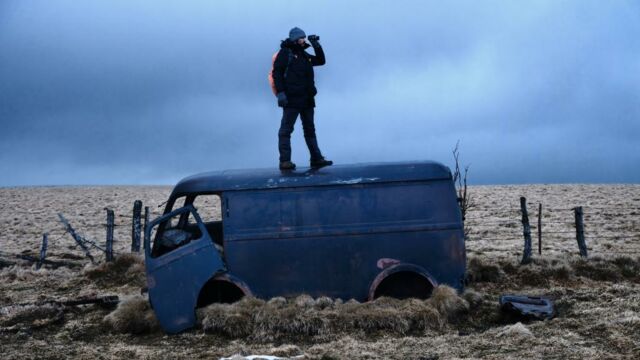Forest fires, floods, food shortages and temperatures so hot they could kill (and have); these are just some of the consequences of climate changewe’re already experiencing, and one study has revealed the worst is yet to come.
Discover our latest podcast
According to researchers at theGlobal Sustainability Institute at Anglia Ruskin University, the world could suffer a breakdown in as little as ‘a few decades’ due to the effects of climate change, environmental destruction and population growth. This collapse would be defined by the disintegration of supply chains, financial powers and even international relations, leaving us all essentially screwed.
Angela Ruskin researchers found that these apocalyptic events were likely to spread out of control due to how connected and interdependent countries are with each other. However, five places would likely come out on top during such a catastrophic worldwide episode.
Which five places are most likely to survive an apocalypse?
According to Angela Ruskin, there are five places most equipped to handle the end of times: New Zealand, Iceland, the United Kingdom, Ireland and Australia (specifically Tasmania).
The fact that they’re all islands isn’t a coincidence. These five regions all have fewer extremes in temperatures and regular rainfall due to their proximity to the ocean, making them ideal environments.
New Zealand tops the list (no surprises there considering their handling of the pandemic) due to its ability to produce its own hydroelectric and geothermal energy, as well as the low population and vast agricultural land.
Professor Aled Jones, director of the Global Sustainability Institute at Anglia Ruskin University, revealed: ‘We weren't surprised New Zealand was on our list.’
We chose that you had to be able to protect borders, and places had to be temperate. So with hindsight it's quite obvious that large islands with complex societies on them already [make up the list].
The UK came in third in the list because although we have relatively fertile soil and varied agricultural output, our large populations make us less likely to be self-sufficient. The UK’s reliance on fossil fuels and nuclear energy also put us at risk because, on the chances that global resources disintegrate, the country’s power supply could suffer. However, we could redeem ourselves by further harnessing renewable energy sources like wind and water. Professor Aled Jones continued:
We were quite surprised the UK came out strongly. It is densely populated, has traditionally outsourced manufacturing, hasn't been the quickest to develop renewable technology, and only produces 50 per cent of its own food.
What about the rest of the world?
If you weren’t already living in one of these five safe havens, you might want to start planning your move, as according to the team at Angela Ruskin, things aren’t looking so good for the rest of the world.
The rest of the world is a densely populated, interconnected landscape with easily traversable borders and massive energy consumption, making it less likely to become self-sustainable during instances of an apocalypse.
Researchers are now encouraging the rest of the world to read the report and reflect on ways they can improve their chances of being self-sufficient in case (or when) the world suffers an ecological collapse.
Professor Jones warned: ‘Significant changes are possible in the coming years and decades.’
The impact of climate change, including increased frequency and intensity of drought and flooding, extreme temperatures, and greater population movement, could dictate the severity of these changes.
He continued:
As well as demonstrating which countries we believe are best suited to managing such a collapse – which undoubtedly would be a profound, life-altering experience – our study aims to highlight actions to address the interlinked factors of climate change, agricultural capacity, domestic energy, manufacturing capacity, and the over-reliance on complexity, are necessary to improve the resilience of nations that do not have the most favourable starting conditions.















